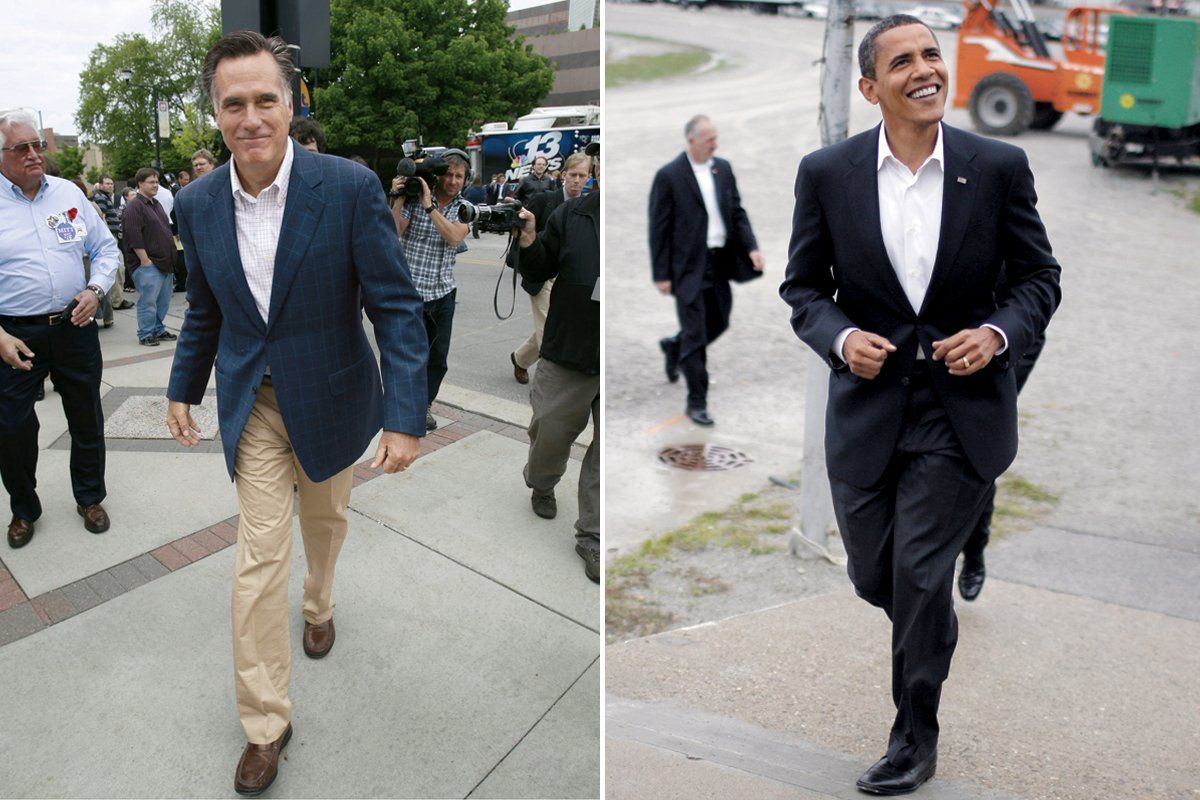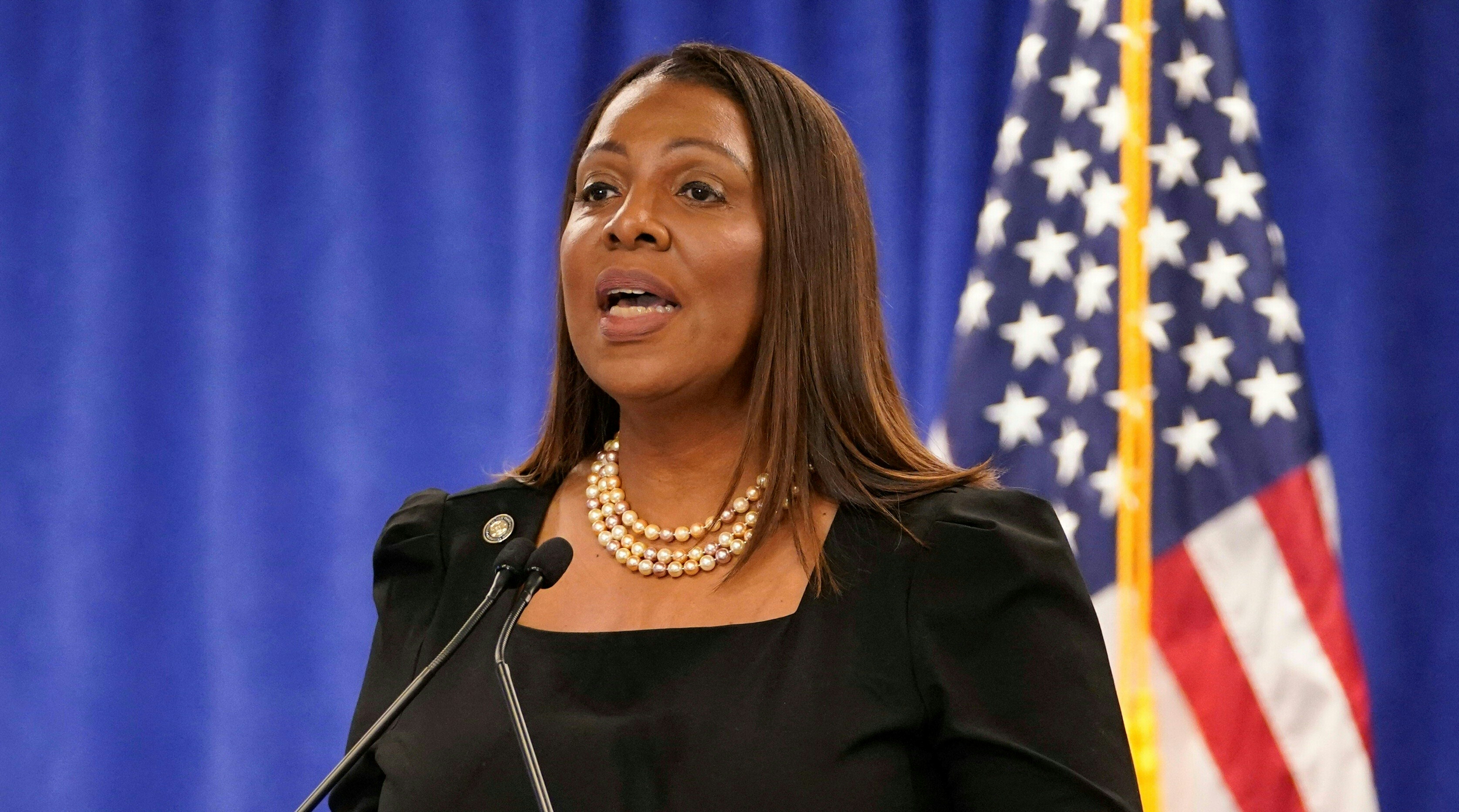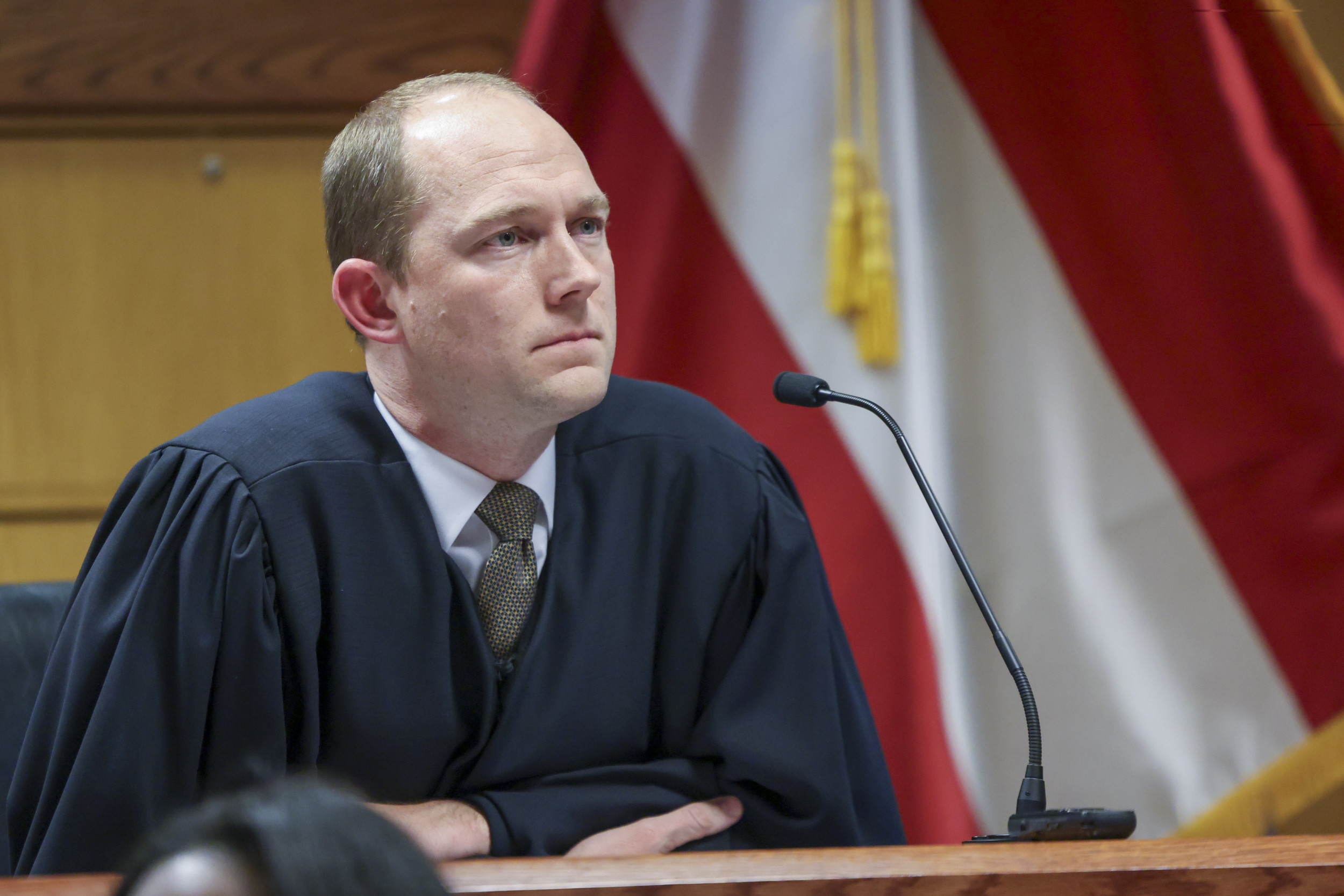
In the pursuit of the presidency, as candidates make use of every form of communication—including style and its nuanced inflections—the earnest rolling of sleeves and strategic mussing of hair has begun. Stick on the flag pins; buy red ties by the gross; stock up on grandpa polos! The Iowa straw poll is just around the bend.
And yet, just when certain costumes are assured—business suits and serious ties, for instance—along come a couple of prominent Republican candidates with something new to say: Mitt Romney and Michele Bachmann. Each reflects an evolution of the political species.
Frontrunner Romney, typically polished to a sheen and awkwardly formal, appears to have misplaced all his ties. Even as he confabs with businessmen who have gussied up in a suit and tie for the occasion, Romney sticks to an open-collar aesthetic. As he touts his experience as a job creator, he studiously avoids looking like the quintessential "suit." Romney's style appears to have made an about-face since his last foray into presidential politics—from that of the guy who mercilessly hands out pink slips to, well, one who at least apologizes as he tells you to clean out your workspace.
The transformation acknowledges voters' demand that candidates prove they are empathetic, regular Joes. And Romney, a multimillionaire, has a lot of proving to do. So instead of stumping for votes dressed for the rarefied job he wants, he looks like a middle manager at the company picnic.
Is this what "looking presidential" now means? Perhaps so.
The last candidate to notably eschew the four-in-hand was President Obama. He favored an open-collar shirt and black suit, which reassured the establishment and satisfied the grassroots. The style had Ebony, Vibe, and Paper swooning over the candidate's "cool" factor. While competitors made speeches trussed up in institutional power, Obama telegraphed a complicated statement about cultural savvy. At last, a candidate was effortlessly casual without flannel shirts, mock turtlenecks, sweater vests, and other fashion pretensions.
Romney's newfound aversion to ties doesn't read as effortless—nothing could when paired with his discomforting body language. But it does read as relevant. As a result, this may be the campaign in which suit-and-tie politics take a debilitating hit.
Bachmann campaigns in sundresses—arms bared—looking confidently pretty but not off-putting. Her hair hangs long and loose rather than cut into the professional woman's shag or bob. She chooses dangly earrings instead of relying on subdued pearls.
Bachmann's are not momentous decisions. But a subtle shift in fashion can indicate a larger cultural one. Her style represents a change in the way women have presented themselves for the presidency.
When Elizabeth Dole, Carol Moseley Braun, and Hillary Clinton ran for commander in chief, their style riffed on the old John T. Molloy template. Dole favored Steel Magnolia skirts and ladylike heels. Moseley Braun looked prim and fearsome with a tight chignon. Clinton turned a rainbow of pantsuits into camouflage—wrapping intelligence, experience, and warmth in constrained sexlessness.
In contrast, Bachmann is all jangling accessories and swishing hair. For that freedom, she's indebted to those trailblazing female candidates who shouldered the burden of fashion clichés—and proved them absurd. She also owes thanks to Sarah Palin and Michelle Obama.
When Palin went national, her hair was a mound of highlighted strands. She wore leather blazers, red heels, and trim pencil skirts. Without being demure, controlled, or sexless, she was still able to wield clout.
Mrs. Obama has imbued the sleeveless sheath with authority thanks to her physicality—yes, those arms—and her reliance on it as her power uniform. She campaigns in sheaths. She wears them to the bully pulpit to cajole a nation into healthier eating. She greets dignitaries in them.
Thanks to all those women, as Bachmann preaches righteous Tea Party indignation, she can dress like she's going to dinner with her girlfriends. And unlike a stiff-backed, tieless Romney, she makes informality look effortless as well as real.
Uncommon Knowledge
Newsweek is committed to challenging conventional wisdom and finding connections in the search for common ground.
Newsweek is committed to challenging conventional wisdom and finding connections in the search for common ground.





